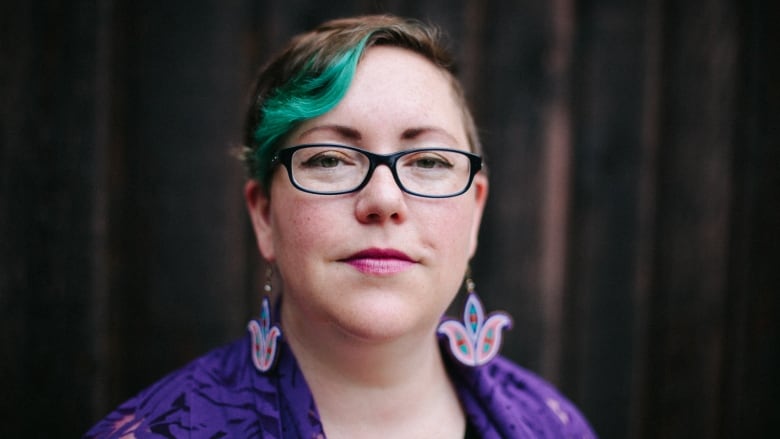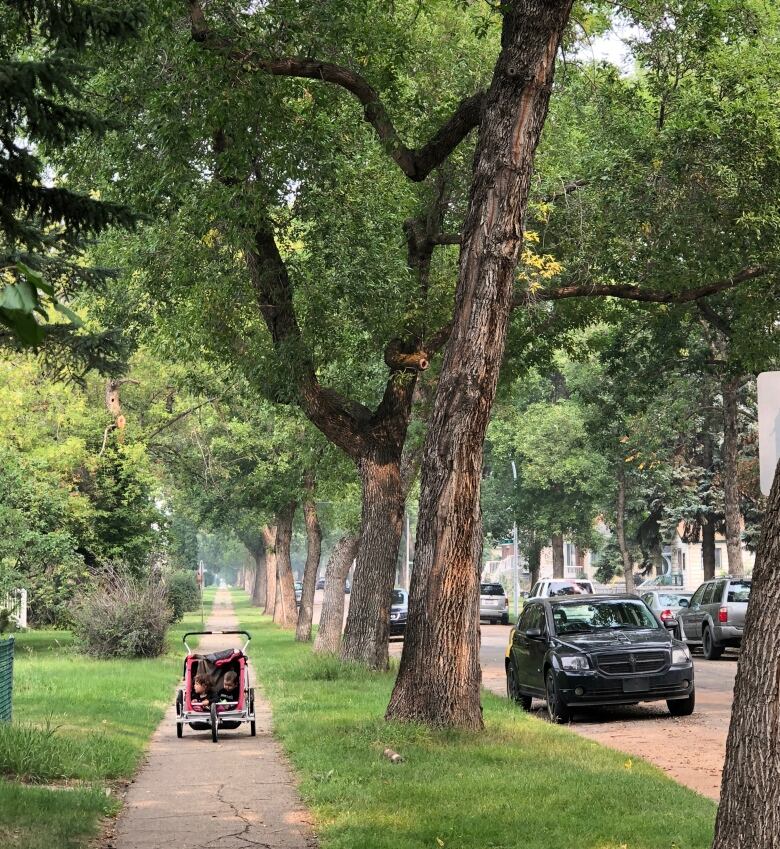Giving my children Cree names is a powerful act of reclamation
The political doesn't get much more personal than speaking the names of my children every day

Even though we'd agreed on the name months before, my exhausted and distracted husband nearly spelled our daughter's name wrong on her live birth certificate. Holding our newborn to my chest, barely aware of my surroundings, I still insisted on seeing the form before he handed it to the nurse.
In his neat, architectural lettering, he'd written "Sakiwayo." I scratched out his writing and wrote it properly:"skoww." No capitals; standardized written Cree doesn't use them. I was reclaiming something important for our daughter, and no matter how much I wanted in that moment to allow myself to slide into unconsciousness, I wasn't going to let an error snatch that away.
Missionaries, teachers, and civil servants erased the given names of hundreds of thousands of Indigenous people at various times in the history of this country. This process became most normalized in the residential school system but was a widespread practice that went on for generations.
Traditional names were often confusing for colonial officials, who would attempt to record phonetic versions in French or English. My husband had unwittingly emulated this distortion when he spelled our daughter's name the way he thinks it sounds in English.
Other Indigenous people had their names translated, resulting in surnames like Littlechild or Red Crow. Imposing foreign, misspelled, or translated names on to Indigenous people was a not merely for administrative convenience, it was a deliberate aspect of a systematic attempt to erase our cultures and identities. Names helped impose European traditions on Indigenous populations. Many families were named after the priest, the Indian agent, or given the names of Christian saints.
Naming practices driven underground
In this way, families became regulated under patriarchal colonial norms even when they came from matrilineal and matriarchal cultures such as the Kanien'keh:ka (Mohawk). For example, assigning of patrilineal surnames helped regulate division of property among heirs in a way that conformed with European, not Indigenous, property laws.
This does not mean that our naming practices were wiped out, but they were driven underground. Jokes by non-Indigenous people about getting your "Indian name" which are almost invariably insulting or racist monikers invented on the spot mock real ceremonies that still continue in our communities. Receiving a traditional name is not something done lightly, nor is it something every Indigenous person has a chance to experience.
To add insult to injury, these names were ineligible for official registration for generations. Unfortunately, this sometimes means that my ancestors' true names have been lost, as they were never recorded.
What really got me thinking about names was the Truth and Reconciliation Commission's 17th Call to Action. The Commission asks all provinces and territories to waive administration fees for five years so residential school survivors and their families can reclaim traditional names that were stripped from them. This includes allowing single names, rather than requiring a surname, and would also necessarily mean allowing symbols outside of the roman alphabet.
This wasn't something that just came out of the blue; throughout the public and private testimonies of survivors of residential schools, the issue of names and identity came up again and again.

When I remarried, and we decided to have more children, I knew immediately that I wanted their names to be in Cree, and my partner supported that. I did ceremony for both names, fasted and asked for guidance from language speakers.
Spelling their names correctly, in standardized Cree, was very important to me because I want our descendants to be sure of what their names mean.
Getting the spelling right
skoww means s/he makes a joyful sound, or war whoops it depends on the context. skww, on the other hand, means s/he comes into view! Now you tell me, even two generations from now, if anyone could be sure which meaning the spelling Sakiwayo intended to evoke?
Our second daughter is named wpanachkos, which means dawn star, or Venus. Both names contain circumflexes over certain vowels. My toddler was born in Quebecand the baby was born in Alberta; both jurisdictions allow these accents.
However, neither province allows characters from non-English alphabets, which mean that some Indigenous parents cannot give their child a name in their language. This can affect the meaning of the name itself! For example, imagine if circumflexes were not allowedand a parent wanted to name their child npiy, which is Cree for a leaf. Without the accent, it looks (and sounds) like nipiy, which means water!
In both provinces, they are required to have a surname. I have had people suggest that allowing people to have single names would be too confusing, until I remind them that there are millions of John Smiths out in the world. Traditionally, we also had ways of making sure names remained unique in their generation, and if traditional names are reclaimed en masse it could be we reinstate these protocols as well.
A starting place for education
Maybe I was too chicken to insist on that extra step of giving them only one name, but I couldn't dismiss my fear of the bureaucratic hassle that would result. We'd be fighting over this every single time we had to do any administrative task involving the girls, and we didn't want the headache. As it is, they're going to have to spell their names out constantly.
For the most part when people ask my children's names, there is an inevitable slow blink and confusion. I am asked to say them again, after which the person repeats their names, perfectly each time. When making an effort to say it right, they do. There is always a conversation about what their names mean, and where they come from.
I am reminded that taking time to learn the proper pronunciation of a person's name is simply a matter of respect. More than this is the fact that our names can be a starting place for education; on more than one occasion, I have met people who had no idea that Cree and Mtis people exist, much less that they are on our territory.
Giving my children these names is a powerful act of reclamation. These lands formed nhiyawwin (Cree), and when we speak our language, even if it's just our names, the land hears us. The political doesn't get much more personal than speaking the names of my children every day.
Over the years, I have had non-Indigenous people ask me about Cree names in their search for baby names. I want to stress that these names are not merely pretty sounding, or up for grabs.
Reclaiming our right to name our children in our way, and have those names recognized and respected, is a powerful act. It is one of the many ways in which we are reclaiming and asserting our identities against the backdrop of a history of dispossession and erasure.
It is my hope that the rest of Canada will enable legislative changes to answer the TRC's Call to Action on traditional names. More than this, I am looking forward to learning the traditional names of Indigenous Peoples all across Canada.












_(720p).jpg)


 OFFICIAL HD MUSIC VIDEO.jpg)
.jpg)



























































































